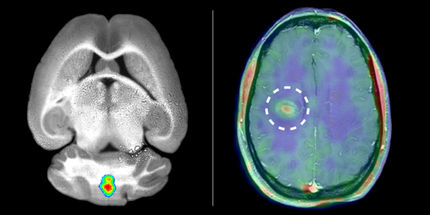Actelion's selective S1P1 receptor agonist ponesimod successful in mid-stage trial for multiple sclerosis
Ponesimod to proceed to Phase III final stage of clinical development
Advertisement
Actelion announced that the primary endpoint - reduction in the number of new active inflammatory lesions in the brain - has been met with its selective S1P1 receptor agonist, ponesimod, in a Phase IIb dose-finding study in patients with relapsing-remitting multiple sclerosis.
The study assessed efficacy, safety and tolerability of three ponesimod doses (10 mg, 20 mg or 40 mg) versus placebo, administered orally once daily for 24 weeks. With 464 patients enrolled, this is the largest ever dose-finding study conducted in this autoimmune disorder of the central nervous system.
In this study, ponesimod significantly reduced the cumulative number of new active lesions on monthly magnetic resonance imaging (MRI) brain scans performed from weeks 12 to 24, with the most effective dose at p<0.0001.
Martine Clozel, M.D. and Chief Scientific Officer at Actelion commented: "This is the first report of a selective S1P1 receptor agonist reporting a statistically significant treatment effect in patients suffering from relapsing multiple sclerosis. The relationship between lymphocyte count reduction and efficacy will be an important topic for further scientific scrutiny. The rapid reversibility of lymphocyte count observed upon treatment discontinuation already highlights a key differentiation attribute of this selective S1P1 receptor agonist and its pharmacokinetic profile."
As in previous healthy volunteer studies with ponesimod, average lymphocyte counts in patients with relapsing multiple sclerosis were reduced in a dose-dependent fashion. Average lymphocyte counts returned to baseline values within a week in patients who discontinued treatment with ponesimod.
Guy Braunstein, M.D. and Head of Clinical Development at Actelion commented: "I am very pleased to observe that this large study shows a clear dose response relationship. This gives us confidence that we can identify the appropriate dosing regimen for the upcoming Phase III program."
Despite the small overall number of confirmed relapses in this study, there was also a clinically meaningful effect observed on annualized relapse rate, an important secondary endpoint. Multiple sclerosis is most commonly diagnosed in young adults and is associated with diverse recurrent neurological symptoms.
Ponesimod exhibited an adverse event pattern in this study that, if confirmed in the upcoming Phase III program, would give ponesimod a competitive safety and tolerability profile.
Once full data analysis has been concluded, Actelion will discuss the details of the upcoming Phase III program with health authorities worldwide. At a later stage, Actelion will discuss and present the findings of this Phase IIb study as well as the Phase III program in scientific presentations and publications.
























































